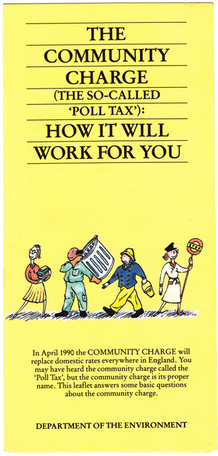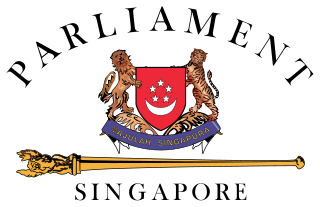
The House of Lords is the upper house of the Parliament of the United Kingdom. Like the lower house, the House of Commons, it meets in the Palace of Westminster in London, England. One of the oldest institutions in the world, its origins lie in the early 11th century and the emergence of bicameralism in the 13th century.

The Scottish Parliament is the devolved, unicameral legislature of Scotland. Located in the Holyrood area of the capital city, Edinburgh, it is frequently referred to by the metonym Holyrood. The Parliament is a democratically elected body comprising 129 members known as Members of the Scottish Parliament (MSPs), elected for five-year terms under the regionalised form of additional member system (MMP): 73 MSPs represent individual geographical constituencies elected by the plurality (first-past-the-post) system, while a further 56 are returned as list members from eight additional member regions. Each region elects seven party-list MSPs. Each region elects 15 to 17 MSPs in total. The most recent general election to the Parliament was held on 6 May 2021, with the Scottish National Party winning a plurality.
A private member's bill is a bill introduced into a legislature by a legislator who is not acting on behalf of the executive branch. The designation "private member's bill" is used in most Westminster system jurisdictions, in which a "private member" is any member of parliament (MP) who is not a member of the cabinet (executive). Other labels may be used for the concept in other parliamentary systems; for example, the label member's bill is used in the Scottish Parliament and the New Zealand Parliament, the term private senator's bill is used in the Australian Senate, and the term public bill is used in the Senate of Canada. In legislatures where the executive does not have the right of initiative, such as the United States Congress, the concept does not arise since bills are always introduced by legislators.

The Lok Sabha, constitutionally the House of the People, is the lower house of India's bicameral Parliament, with the upper house being the Rajya Sabha. Members of the Lok Sabha are elected by an adult universal suffrage and a first-past-the-post system to represent their respective constituencies, and they hold their seats for five years or until the body is dissolved by the President on the advice of the council of ministers. The house meets in the Lok Sabha Chambers of the Parliament House, New Delhi.

The Community Charge, commonly known as the poll tax, was a system of local taxation introduced by Margaret Thatcher's government whereby each taxpayer was taxed the same fixed sum, with the precise amount being set by each local authority. It replaced domestic rates in Scotland from 1989, prior to its introduction in England and Wales from 1990. The abolition of the poll tax was announced in 1991 and it was replaced in 1993 by the current system of the Council Tax.

Local government in England broadly consists of three layers: civil parishes, local authorities, and regional authorities. Every part of England is governed by at least one local authority, but parish councils and regional authorities do not exist everywhere. In addition, there are 31 police and crime commissioners, four police, fire and crime commissioners, and ten national park authorities with local government responsibilities. Local government is not standardised across the country, with the last comprehensive reform taking place in 1974.
The Reserve Bank of New Zealand (RBNZ) is the central bank of New Zealand. It was established in 1934 and is currently constituted under the Reserve Bank of New Zealand Act 2021. The governor of the Reserve Bank, currently Adrian Orr, is responsible for New Zealand's currency and operating monetary policy.
Rates are a type of property tax system in the United Kingdom, and in places with systems deriving from the British one, the proceeds of which are used to fund local government. Some other countries have taxes with a more or less comparable role, like France's taxe d'habitation.

In the United Kingdom, taxation may involve payments to at least three different levels of government: central government, devolved governments and local government. Central government revenues come primarily from income tax, National Insurance contributions, value added tax, corporation tax and fuel duty. Local government revenues come primarily from grants from central government funds, business rates in England, Council Tax and increasingly from fees and charges such as those for on-street parking. In the fiscal year 2014–15, total government revenue was forecast to be £648 billion, or 37.7 per cent of GDP, with net taxes and National Insurance contributions standing at £606 billion.

The Climate Change Levy (CCL) is a tax on energy delivered to non-domestic users in the United Kingdom.

The Parliament of Singapore is the unicameral legislature of the Republic of Singapore, which governs the country alongside the president of Singapore. Largely based upon the Westminster system, the Parliament is made up of Members of Parliament (MPs) who are elected, as well as Non-constituency Members of Parliament (NCMPs) and Nominated Members of Parliament (NMPs) who are appointed. Following the 2020 general election, 93 MPs and two NCMPs from three political parties were elected to the 14th Parliament. Throughout the sitting of Parliament, nine NMPs are usually appointed by the president on a biennial basis.

The Valuation Office Agency is a government body in England and Wales. It is an executive agency of His Majesty's Revenue and Customs.

Business rates in England, or non-domestic rates, are a tax on the occupation of non-domestic property. Rates are a property tax with ancient roots that was formerly used to fund local services that was formalised with the Vagabonds Act 1572 and superseded by the Poor Relief Act 1601. The Local Government Finance Act 1988 introduced business rates in England and Wales from 1990, repealing its immediate predecessor, the General Rate Act 1967. The act also introduced business rates in Scotland but as an amendment to the existing system, which had evolved separately to that in the rest of Great Britain. Since the establishment in 1997 of a Welsh Assembly able to pass legislation, the English and Welsh systems have been able to diverge. In 2015, business rates for Wales were devolved.

Energy performance certificates (EPCs) are a rating scheme to summarise the energy efficiency of buildings. The building is given a rating between A - G (Inefficient). The EPC will also include tips about the most cost-effective ways to improve the home energy rating. Energy performance certificates are used in many countries.

Business rates is the commonly used name of Non-Domestic Rates in Scotland, a tax on occupation of non-domestic property. Rates are a property tax used to fund local services that dates back to the Poor Law.
The federation of Stoke-on-Trent was the 1910 amalgamation of the six Staffordshire Potteries towns of Burslem, Tunstall, Stoke-upon-Trent, Hanley, Fenton and Longton into the single county borough of Stoke-on-Trent. The federation was one of the largest mergers of local authorities, involving the greatest number of previously separate urban authorities, to take place in England between the nineteenth century and the 1960s. The 1910 federation was the culmination of a process of urban growth and municipal change that started in the early 19th century.

Heather Janet Logie is a New Zealand politician and a former member of the New Zealand House of Representatives. She is a member of the Green Party of Aotearoa New Zealand.

In the United Kingdom, the value added tax (VAT) was introduced in 1973, replacing Purchase Tax, and is the third-largest source of government revenue, after income tax and National Insurance. It is administered and collected by HM Revenue and Customs, primarily through the Value Added Tax Act 1994.
Rates are a tax on property in the United Kingdom used to fund local government. Business rates are collected throughout the United Kingdom. Domestic rates are collected in Northern Ireland and were collected in England and Wales before 1990 and in Scotland before 1989.

The Modern Slavery Act 2015 is an Act of the Parliament of the United Kingdom. It is designed to combat modern slavery in the UK and consolidates previous offences relating to trafficking and slavery. The act extends essentially to England and Wales, but some provisions apply in Scotland and Northern Ireland.












